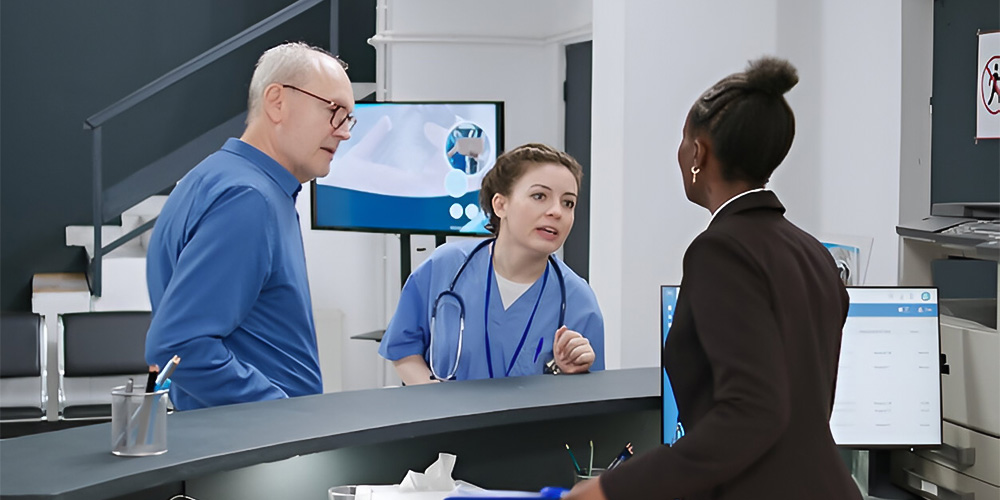
In today’s increasingly diverse society, healthcare providers must communicate effectively with patients from a wide range of linguistic and cultural backgrounds. One of the most crucial roles in ensuring accurate and compassionate communication is that of a Medical Interpreter. These professionals serve as bridges between patients with limited English proficiency and healthcare providers, enabling both parties to understand each other clearly. Without this essential support, miscommunication could lead to misdiagnosis, incorrect treatment, or even serious medical errors.
Understanding the Role of Medical Interpreters:
First and foremost, it’s important to understand what a Medical Interpreter does. These individuals are trained not only in multiple languages but also in medical terminology, ethical standards, and cultural sensitivity. Unlike general interpreters, medical interpreters work in high-stakes environments such as hospitals, clinics, and emergency rooms, where every word can impact a patient’s health outcomes.
Moreover, they don’t just translate words, they convey meaning, tone, and intent. For example, a patient might express discomfort or anxiety subtly, and a qualified medical interpreter must capture that nuance to relay it accurately to the physician. This deeper understanding makes them more than just translators; they are trusted allies in the medical journey. ;
Why Are Medical Interpreters So Important?
The importance of Medical Interpreters can’t be overstated. Let’s delve into some key reasons why they are indispensable in healthcare settings.
1. Ensuring Accurate Diagnosis and Treatment:
To begin with, communication is the cornerstone of effective medical care. When doctors and nurses cannot understand a patient’s symptoms, or when patients can’t comprehend medical advice, the risk of incorrect treatment skyrockets. A Medical Interpreter ensures that medical histories, symptoms, and instructions are clearly understood, thereby significantly reducing the margin for error.
2. Promoting Patient Safety:
In addition to accuracy, medical interpreters play a critical role in promoting patient safety. For example, consider a scenario where a patient is allergic to a specific medication but is unable to convey this information due to a language barrier. In such a case, a qualified interpreter becomes essential in preventing life-threatening situations.
Furthermore, misunderstandings about dosage, side effects, or aftercare can have severe consequences. Medical interpreters help mitigate these risks by ensuring every detail is communicated correctly and thoroughly.
3. Enhancing Patient Satisfaction:
Beyond clinical accuracy, there is also the human element. Patients who feel heard, understood, and respected are more likely to be satisfied with their healthcare experience. They are also more likely to follow treatment plans and return for follow-up care.
When patients can express their fears, ask questions, and receive empathetic responses in their native language, they feel more confident and supported. Thus, medical interpreters contribute not just to better outcomes, but also to stronger provider-patient relationships.
Compassionate & Accurate Medical Interpretation Services
Break language barriers with our certified medical interpreters who deliver clear, compassionate, and accurate communication. Experience medical care that’s fully understood and trusted at every step.
The Growing Demand for Medical Interpreter Services
With over 25 million people in the United States classified as having limited English proficiency (LEP), the demand for Medical Interpreter services has never been higher. This need is especially urgent in urban centers and areas with diverse immigrant populations.
Hospitals and clinics increasingly rely on both in-person and remote interpreting services to bridge communication gaps. Whether through on-site professionals, video remote interpreting (VRI), or over-the-phone interpreting (OPI), access to qualified interpreters is now seen as a non-negotiable aspect of quality care. Moreover, federal regulations like Title VI of the Civil Rights Act require healthcare facilities receiving federal funds to provide language assistance to LEP patients. This legal requirement further underscores the necessity of qualified medical interpretation.
Career Opportunities in Medical Interpretation
As demand grows, so do opportunities for individuals seeking Medical interpreter jobs. These positions are not only meaningful but also offer stable employment in a growing field. They are needed in various settings including hospitals, mental health clinics, rehabilitation centers, and even insurance companies.
In addition to fluency in two or more languages, candidates often need certification, such as those provided by the National Board of Certification for Medical Interpreters (NBCMI) or the Certification Commission for Healthcare Interpreters (CCHI). These certifications ensure interpreters meet the necessary ethical and technical standards to work effectively in medical settings. If you’re bilingual and passionate about helping others, becoming a medical interpreter could be an incredibly fulfilling career path.
Spotlight: Medical Interpreter Jobs in Michigan
Interestingly, there is a notable surge in medical interpreter jobs in Michigan. As one of the most diverse states in the Midwest, Michigan has seen an increasing demand for interpreters in languages such as Arabic, Spanish, Chinese, and Vietnamese. Cities like Detroit, Grand Rapids, and Ann Arbor are home to large immigrant communities, making medical interpretation services a critical need.
Healthcare facilities across the state are actively hiring for these roles, and many are offering competitive pay and benefits. For those who reside in Michigan or are considering relocating, it presents a valuable opportunity to contribute to community well-being while building a meaningful career.
Overcoming Common Challenges
Despite the clear importance of medical interpreters, there are challenges to be addressed. One common issue is the shortage of qualified professionals in rural or underserved areas. Telehealth and video interpretation platforms are helping to close this gap, but more investment is needed to ensure consistent access.
Additionally, some healthcare providers may attempt to use untrained bilingual staff or even family members to interpret. This practice is not only risky but also unethical, as it can compromise patient confidentiality and accuracy. Medical interpreters must advocate for professional standards to ensure quality care.
Transitioning Toward a More Inclusive Healthcare System
Looking ahead, the integration of medical interpretation into mainstream healthcare is essential for creating a more inclusive, equitable system. As the U.S. population becomes increasingly multilingual, healthcare providers must adapt by incorporating language access as a fundamental part of patient care.
Furthermore, They can serve as cultural liaisons, helping providers understand cultural norms and expectations that may affect healthcare decisions. For instance, in some cultures, it’s common for patients to defer major medical decisions to family elders. A medical interpreter who understands these nuances can help facilitate culturally appropriate care.
How to Find Quality Medical Interpreter Services?
If you’re a healthcare provider or organization seeking to offer more inclusive services, finding a reputable and certified medical interpreter is key. Look for agencies or individuals who are certified, experienced, and trained in medical terminology.
Also, consider whether you need in-person interpretation or remote options like video or phone-based services. The latter can be especially helpful for emergency or after-hours care, where immediate interpretation is necessary. Additionally, always confirm that interpreters follow confidentiality laws such as HIPAA, and ensure they are comfortable working in high-pressure, emotionally charged environments.
Compassionate & Accurate Medical Interpretation Services
Break language barriers with our certified medical interpreters who deliver clear, compassionate, and accurate communication. Experience medical care that’s fully understood and trusted at every step.
Final Thoughts:
In conclusion, the role of a Medical Interpreter is not only vital but transformative. From ensuring accurate diagnoses to enhancing patient trust, they are key players in delivering safe, effective, and compassionate healthcare. As our society becomes more linguistically diverse, the value of their work will only continue to grow.
Whether you’re a patient, healthcare provider, or someone considering a career change, it’s important to recognize and support the crucial contributions of medical interpreters. Their presence is not a luxury; it’s a necessity that elevates the standard of care for everyone.

